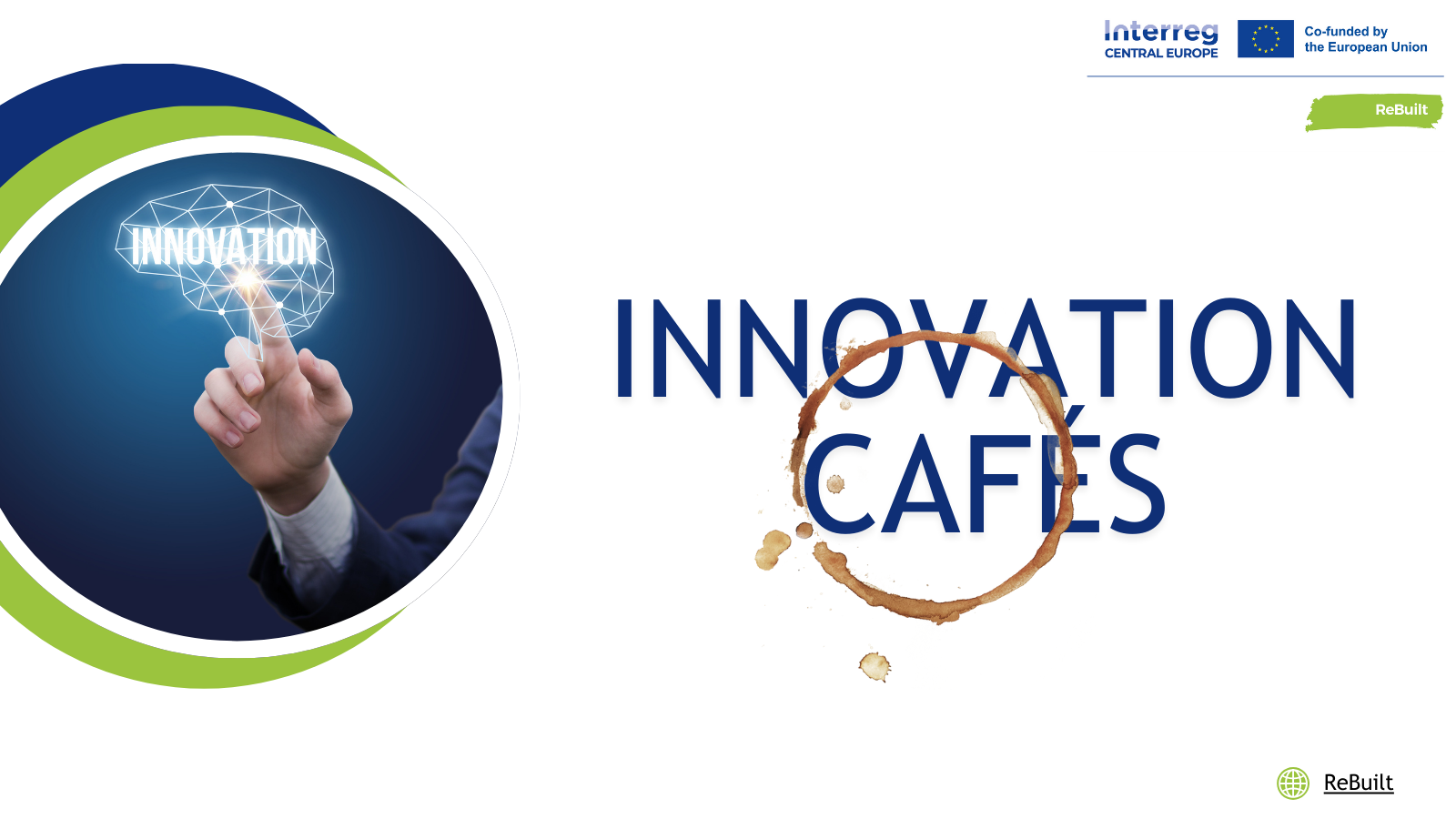The Innovation Cafés were organised by all project partners of the ReBuilt project, which focuses on circular and digital solutions in construction. The events dismantled traditional silos, fostering the co-creation of ideas to address critical challenges in the construction industry, particularly in sustainability and the circular economy. They focused on reducing waste, enhancing resource efficiency, and promoting sustainable construction practices. International collaboration enabled participants to exchange knowledge, identify best practices across borders, and accelerate the scaling of innovations.
1# Innovation Café, 4.3.2025
The first online Innovation Café was organised by Slovak, Czech and Italian partners.
Four innovations were presented:
-
Benjamin Hague, Head of Think Tank at INCIEN (Slovakia) The pilot projects being developed within the Danube regional project Circular DigiBuild was introduced. The pilot projects will focus on potential use cases (such as creation of a digital twin to inventory and certify building materials) for a digital materials management solution based on the UUProtocol, a universal digital framework for managing and tracking data on materials and components in buildings.
-
Jiří Fiala,RED-BETON s.r.o (Czech Republic) Presentation of the practical use of recycled brick in concrete mixtures, which are used in ready-mix concretes and for simple prefabrication followed. The current use of recycle aggregates in concretes in the Czech Republic, the classification of concretes by content of recycled material used according to strength and environmental class, and certification options were presented.
-
Martin Pribila,Talpa House (Slovakia) Introducing the first recycled concrete waste in waterproof con-crete-achieving 55% recycled aggregate while eliminating PVC, asphalt and HDPE membranes. It showed a practical approach to using recycled concrete and reclaimed materials in construction, focusing on real-world applications, challenges, and regulatory barriers.
-
Marcel Sedlak, HB Reavis (Slovakia) The presentation spoke about a strategy to reduce and track upfront embodied carbon in buildings through design, procurement, and construction processes, ensuring real emission reductions before utilizing carbon offsetting.
Conclusion
The presentations highlighted significant challenges, including regulatory gaps, low market demand, high costs of circular materials, and limited digitalization within the construction sector. However, several solutions emerged, such as the use of low-carbon recycled concrete. Looking ahead, opportunities for scaling up these initiatives include policy reforms, particularly in adapting EN 206 for recycled concrete and aligning strategies with the Energy Performance of Buildings Directive (EPBD). Financial instruments aimed at supporting circular economy adoption will be crucial in overcoming cost barriers, while industrywide upskilling and collaboration will drive broader adoption of sustainable practices. Finally, discussions highlighted the importance of aligning policy, technology and market incentives to accelerate circular construction across the region.
